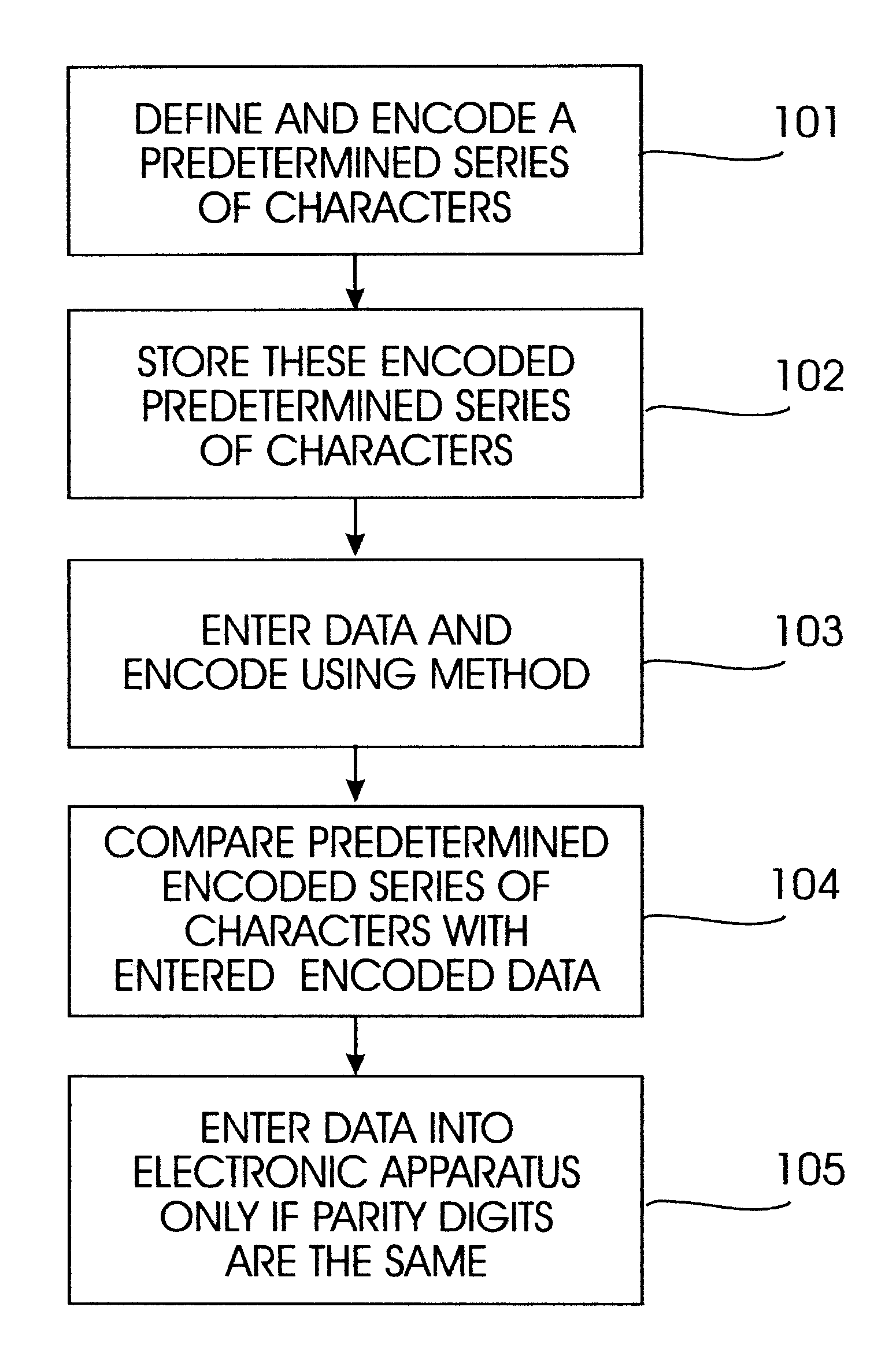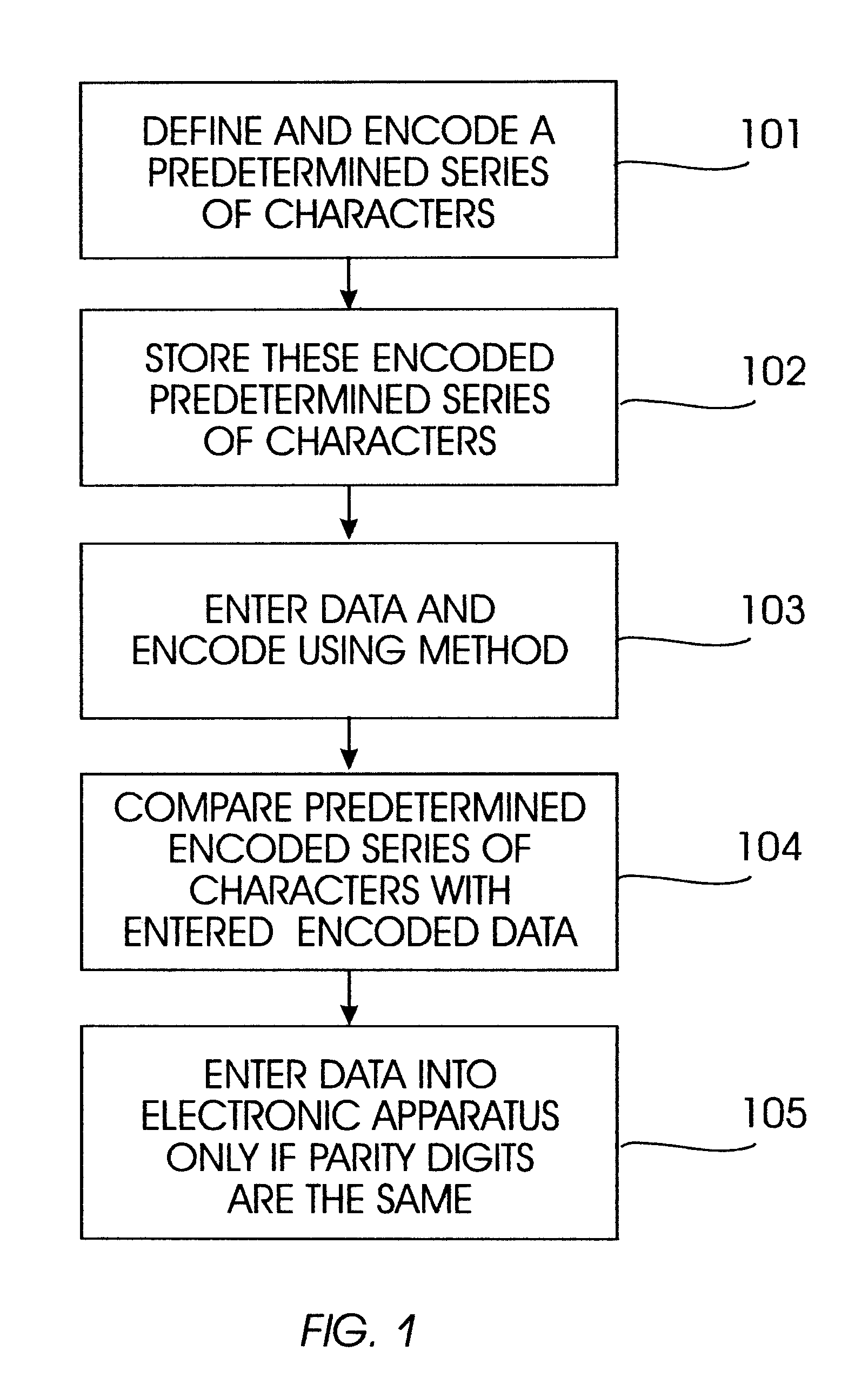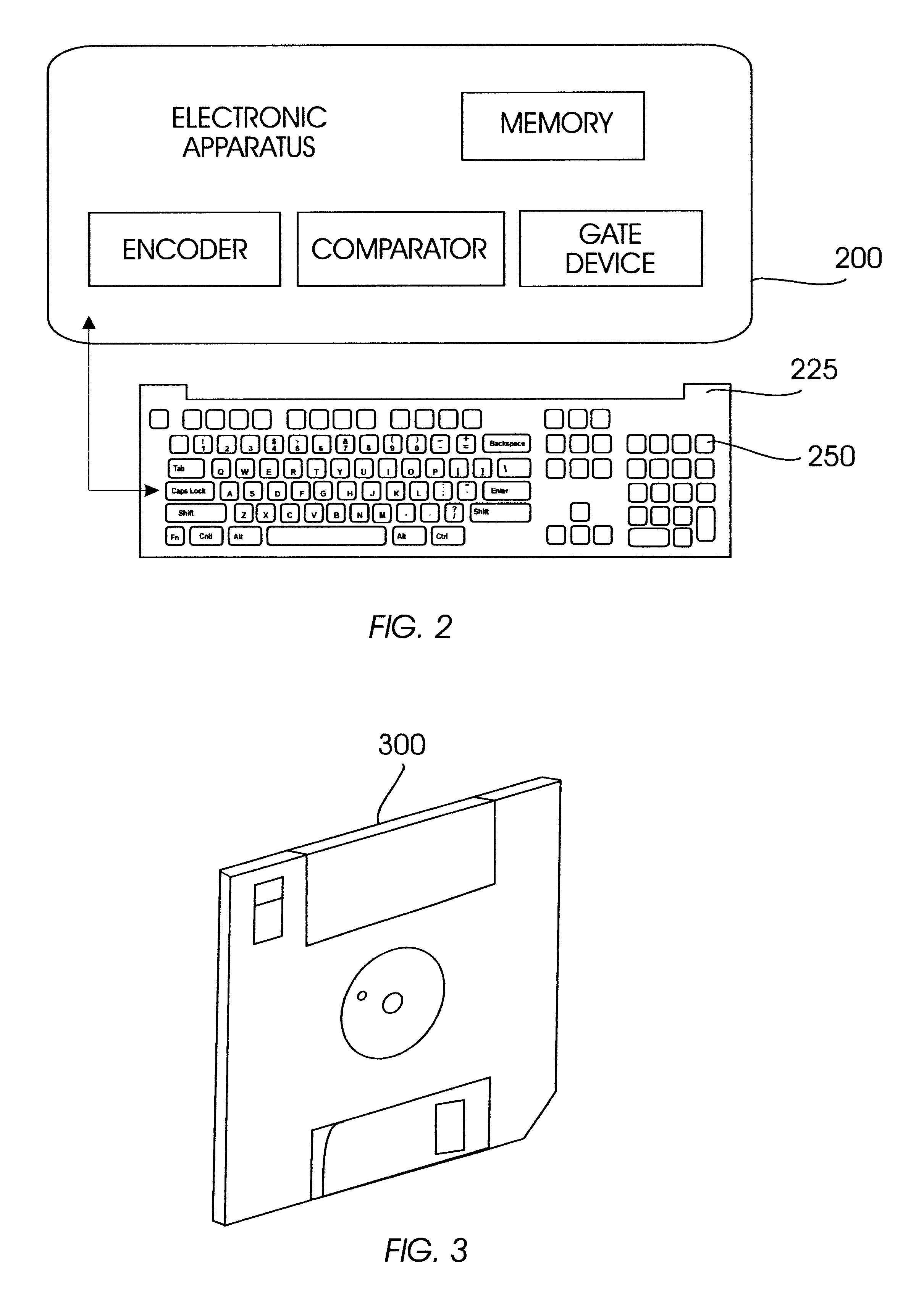Apparatus and method for verifying proper data entry and detecting common typing errors
a technology of correct data entry and electronic equipment, applied in the direction of coding, instruments, code conversion, etc., can solve the problems of harming the reputation of the person, affecting the business, and causing the loss of the person's reputation,
- Summary
- Abstract
- Description
- Claims
- Application Information
AI Technical Summary
Benefits of technology
Problems solved by technology
Method used
Image
Examples
Embodiment Construction
A permutation of two adjacent characters (digits) designated as such on an input keyboard of an electronic apparatus (e.g., a personal computer) is a particular case of what in coding theory is known as a burst error of length 2. According to the Reiger bound, in order to detect all possible bursts of length 2, at least two redundant parity characters (digits) must be added to a series of characters (digits). Even in view of such restrictions, how to effectuate this using the set of decimal digits as configured on a computer keyboard is not obvious, since these characters do not constitute a field. Although codes (rules) over symbols constituting a field are well known (the cardinality of a finite field must be a power of a prime number, wherein the number 10 is not), there are not many codes having optimal properties over sets that are not fields. Using these principals, the invention herein includes mechanisms for detecting the most common typing errors using only one additional p...
PUM
 Login to View More
Login to View More Abstract
Description
Claims
Application Information
 Login to View More
Login to View More - R&D
- Intellectual Property
- Life Sciences
- Materials
- Tech Scout
- Unparalleled Data Quality
- Higher Quality Content
- 60% Fewer Hallucinations
Browse by: Latest US Patents, China's latest patents, Technical Efficacy Thesaurus, Application Domain, Technology Topic, Popular Technical Reports.
© 2025 PatSnap. All rights reserved.Legal|Privacy policy|Modern Slavery Act Transparency Statement|Sitemap|About US| Contact US: help@patsnap.com



